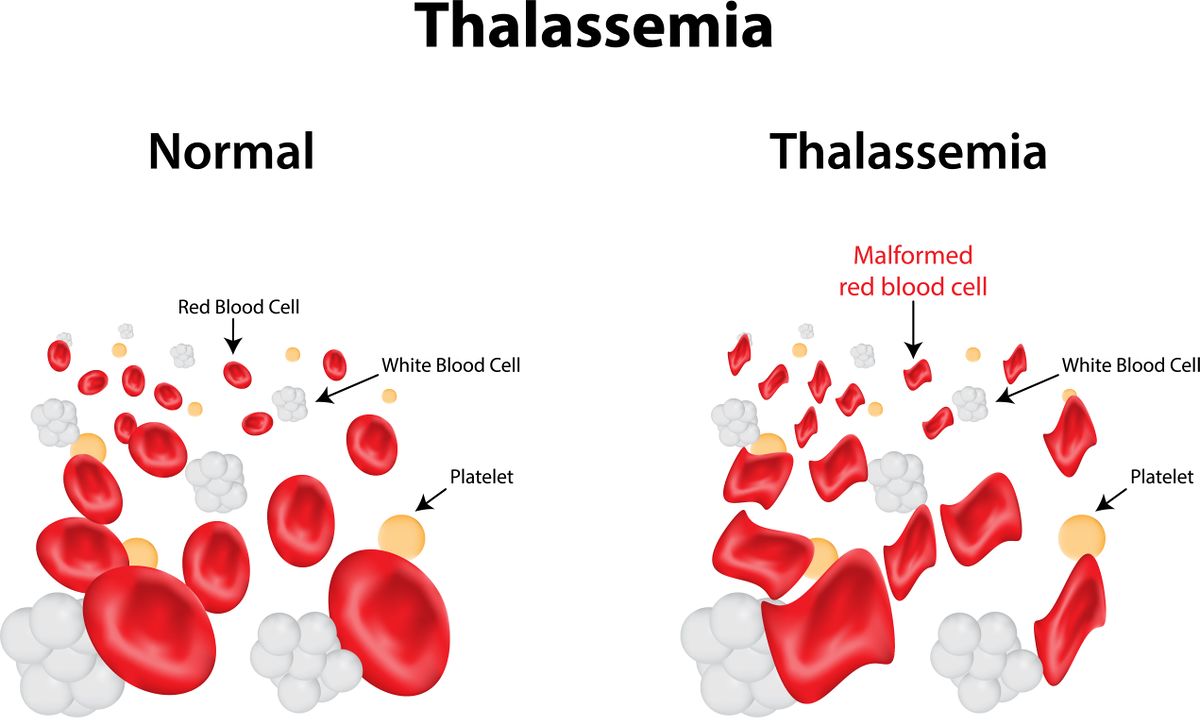Since thalassemia can be passed on from one generation to another, you and your partner should go for a thalassemia screening if you are:
- Planning to get married
- Starting a family.
Thalassemia screening involves a simple blood test which is readily available.
There are two types of thalassemia:
- Thalassemia minor (thalassemia trait)
- Thalassemia major
A person who has inherited one thalassemia gene is said to have a thalassemia minor (thalassemia trait). He or she is healthy and leads a normal life. Most people with
thalassemia minor do not know they have it. However, the affected persons can pass on the abnormal gene to their children.
Thalassemia major is a severe form of anemia. The affected person has inherited two thalassemia genes, one from each parent. He or she may look normal at birth but within 1–2 years of life, will suffer from severe anemia, which leads to poor growth and development as well as a shorter lifespan.
The affected person will need a blood transfusion every month to sustain life. At present, a bone marrow transplant is the only hope of possible cure for thalassemia major.
2 variants of Thalassemia –
Alpha thalassemia is a separate condition, which may be tested in specific cases using special DNA test. It occurs when one or more of the four alpha blood chain genes fails to function.
This condition can be that of a silent carrier (one or two genes deletion), blood-transfusion dependent (three genes deletion) or fatal (four genes deletion).
Beta thalassemia is an inherited blood disorder, which is caused by an abnormal gene.
A person with thalassemia is unable to produce normal, functioning hemoglobin in the blood. Hemoglobin carries oxygen from the lungs to all parts of the body. When the body is not able to produce normal, functioning hemoglobin, the affected person suffers from anemia.
Thalassemia is passed on from parent to child and can affect both males and females.
If only one parent has thalassemia minor, the following can occur:
- 50% chance of having a child with thalassemia minor
- 50% chance of having a normal child
- None of the couple’s children will get thalassemia major.
If both parents have thalassemia minor, the following can occur:
- 25% chance of having a child with thalassemia major
- 50% chance of having a child with thalassemia minor
- 25% chance of having a normal child.
The chances are the same with each pregnancy, no matter how many children the couple may have.

